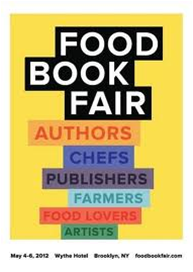Food books worth blurbing: just published
I get asked to blurb books every now and then and say yes to the ones I especially appreciate. Here are three recently published books, well worth having and reading:
Fred Kaufman, Bet the Farm: How Food Stopped Being Food, Wiley, 2012.
In Bet the Farm, Fred Kaufman connects the dots between food commodity markets and world hunger. Kaufman is a wonderfully entertaining writer, able to make the most arcane details of such matters as wheat futures crystal clear. Readers will be alternately amused and appalled by his accounts of relief agencies and the interventions of rich nations. This book is a must-read for anyone who cares about feeding the hungry in today’s globalized food marketplace. It’s on the reading list for my NYU classes.
Counihan C, Van Esterik P, eds. Food and Culture, Routledge, 2012.
Food and Culture is the indispensable resource for anyone delving into food studies for the first time. The editors have conveniently gathered readings from classic texts to the latest writings on cutting-edge issues in this field. Although in its third edition, the book has so much new material that it reads as fresh and should appeal and be useful to students and others from a wide range of disciplines.
Jon Krampner, An Informal History of Peanut Butter, The All-American Food, Columbia University Press, 2012.
Creamy and Crunchy is a fast-paced, entertaining, and wonderfully gossipy look at the history of everything about peanut butter, from nutrition to allergies and genetic modification—and with recipes, yet. Everyone who loves peanut butter will want to read this book (personally, I prefer crunchy).



